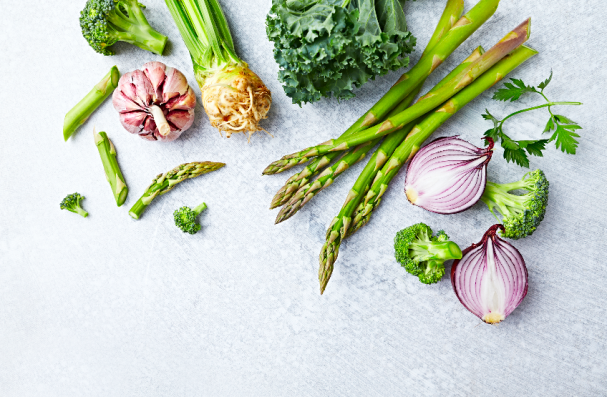When it comes to maintaining a healthy diet, eating lots of colourful fruits and veg undoubtedly plays a crucial role. They are packed with essential nutrients, fiber, and antioxidants that promote overall well-being.
However, even though veggies are good for your body, they’re not always easy on the digestive tract. Due to the excess gas content in certain vegetables, some people may the uninvited symptoms of tummy discomfort and bloating. So, while you’re getting your low-calorie, high-fiber veggie meals in, you need to maintain a good balance in your diet.
Let’s look at which veggies cause bloating and gas, and how to balance your meals correctly:
ALSO SEE: What are the benefits of vitamin C?
How veggies cause gas
Vegetables such as beans, lentils, broccoli, cauliflower, cabbage, and Brussels sprouts can contribute to gas and bloating as they contain complex carbohydrates that are not easily digested by the human body.
The same can be said for fibrous veggies. Veggies are a great source of dietary fiber which is essential for maintaining a healthy digestive system but excessive fiber intake, especially from vegetables like artichokes, peas, and corn, can cause some nasty gas.
Additionally, certain vegetables such as cabbages and radishes contain a sugar called raffinose. Humans lack the enzyme necessary to break down raffinose, leading to increased gas production when these vegetables are consumed.

How to combat gas from veggies
Soaking and rinsing
Soaking dried beans, lentils, and chickpeas overnight and then rinsing them thoroughly before cooking can help reduce their gas-producing properties.
Cooking techniques
Employ cooking methods that aid in breaking down complex carbohydrates and fiber. Boiling, steaming, or pressure-cooking vegetables like broccoli, cauliflower, and cabbage can make them easier to digest, minimising gas production.
Combination with digestive spices
Combining vegetables with digestive spices like ginger, cumin, fennel, or turmeric can help alleviate gas issues. These spices have natural properties that aid in digestion.
Gradual increase in consumption
If you’re introducing more vegetables into your diet, it’s best to do so gradually. Start with smaller portions and gradually increase the serving size over time. This allows your digestive system to adjust and reduce gas production.
Vegetables are an essential part of a balanced diet, but their gas-producing properties can disrupt all its actual benefits.
ALSO SEE: 8 visual clues of nutrient deficiencies to look out for
Remember to experiment with cooking techniques, and combine vegetables with digestive spices like ginger, mint, cinnamon, and turmeric to increase your vegetable consumption without the stinky symptoms.
If gas-related issues persist or worsen, consult a healthcare professional to rule out any underlying digestive conditions.
ALSO SEE:
Featured Image: Getty

